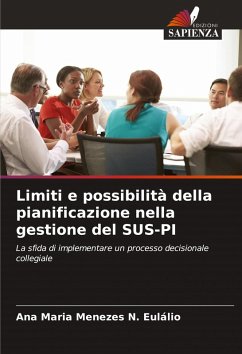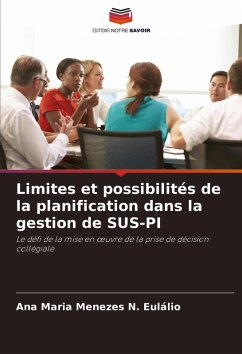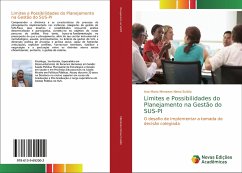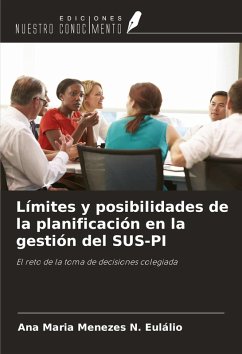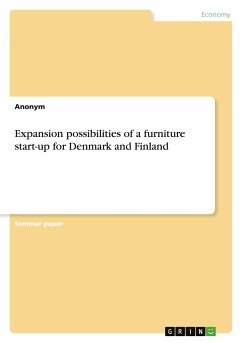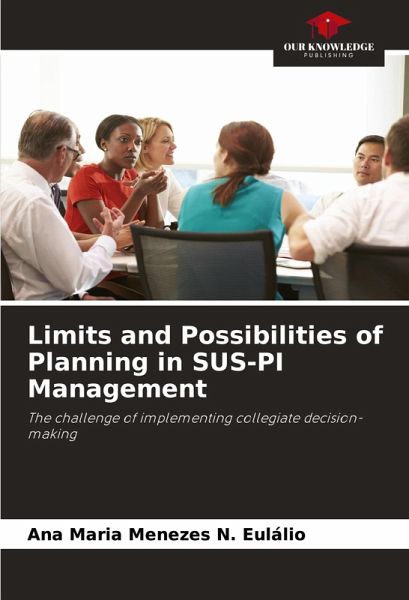
Limits and Possibilities of Planning in SUS-PI Management
The challenge of implementing collegiate decision-making
Versandkostenfrei!
Versandfertig in 6-10 Tagen
47,99 €
inkl. MwSt.

PAYBACK Punkte
24 °P sammeln!
Understanding the dynamics and characteristics of the planning process implemented in the collegiate management bodies of SUS-Piauí, its challenges and possibilities as a decentralised and participatory practice, is the aim of our analysis. In order to do so, we are based on the assumption that planning, in addition to its instrumental and methodological character, takes on the political dimension of a social process and practice in the context of SUS management, capable of fostering articulation, making conflicts explicit, harmonising interests, enabling negotiation and agreement between the...
Understanding the dynamics and characteristics of the planning process implemented in the collegiate management bodies of SUS-Piauí, its challenges and possibilities as a decentralised and participatory practice, is the aim of our analysis. In order to do so, we are based on the assumption that planning, in addition to its instrumental and methodological character, takes on the political dimension of a social process and practice in the context of SUS management, capable of fostering articulation, making conflicts explicit, harmonising interests, enabling negotiation and agreement between the different social actors, thus making the system's management more efficient.






